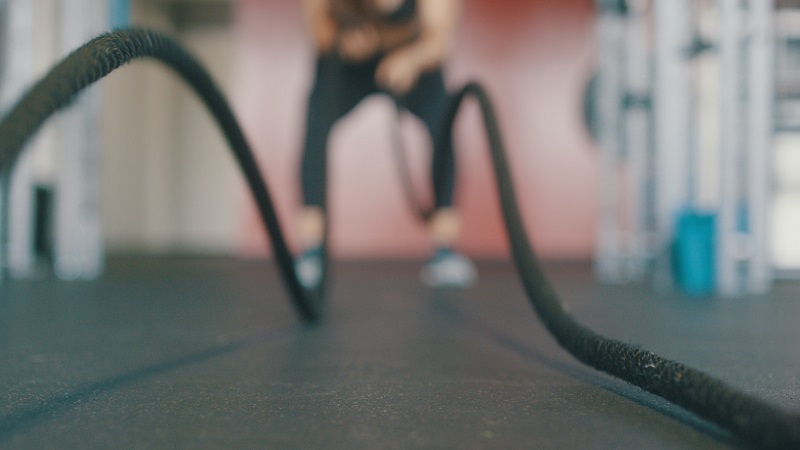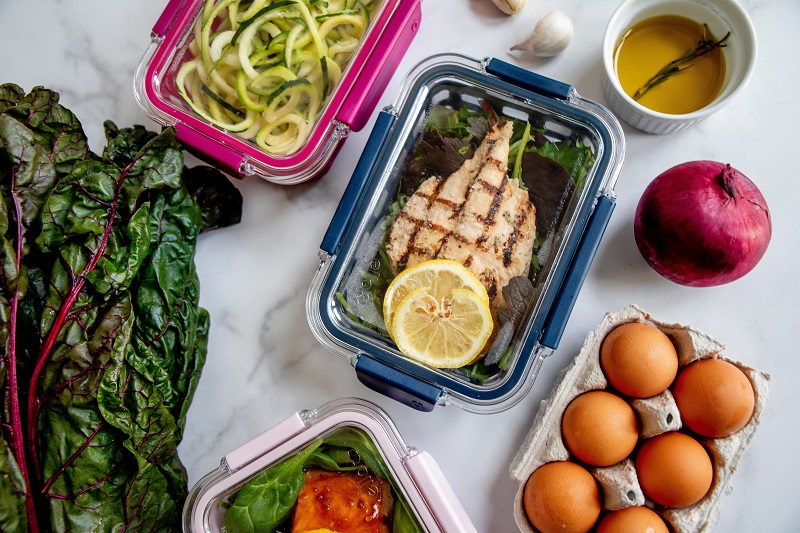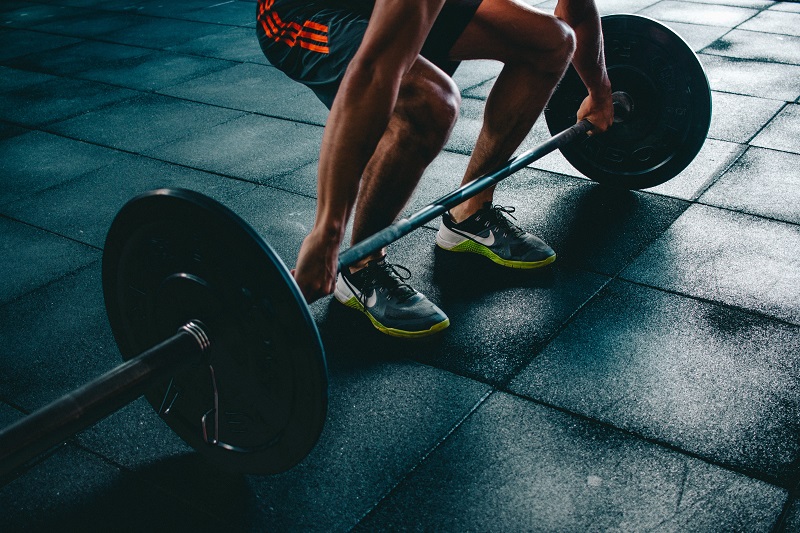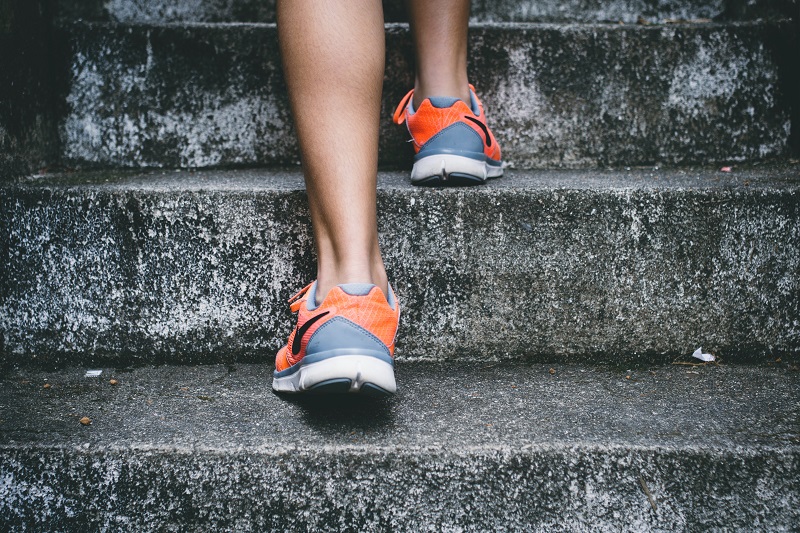We’re often asked about pre-workout nutrition and what to eat before a workout, from fitness enthusiasts to athletes, having good nutrition will help your body perform at its best and recover quicker.
James Weeks, lead Dietician for CHU and registered Dietitian, has broken down everything you need to know about pre-workout nutrition and what to eat before a workout, to help you achieve those fitness goals.

Why it’s important to eat before exercising
How much, what and when we eat before exercising directly affects our athletic performance, endurance and recovery. Carbohydrates are needed for almost every form of activity and so having low muscle glycogen stores directly impacts performance. Carbohydrates are the primary fuel source during high intensity activity. High muscle glycogen stores therefore allow you to train at a high intensity for a longer. Conversely, low muscle glycogen stores lead to an early onset of fatigue, reduced capacity for high intensity training, reduced power output and decreased performance. Maximising muscle glycogen stores is therefore essential to those wanting to train at a high intensity.
Protein around exercise is just as important as carbohydrate intakes and is arguably as important as meeting total daily protein requirements. Protein, when consumed with carbohydrates prior to and during exercise, stimulates muscle protein synthesis, minimises muscle breakdown and improves recovery.
Studies have also shown that consuming a readily digestible protein and carbohydrate drink prior to exercise increases muscle protein synthesis far greater than when consumed after exercise. So for those of you who regularly take your protein shake after a workout, you may want to rethink this and take it before training.
What to eat before exercising?

This is a common question for many and the answer is, well, it depends. For most, the goal of a workout is to improve fitness, develop muscle mass and/or promote weight loss. To achieve any of these goals, we need to perform at our best and this means having a quality pre-workout meal. Ideally, meals should be eaten 2-4hrs before training to allow enough time for digestion and absorption to occur. However, the timing of your pre-workout meal will largely depend on your individual schedule.
Meals should be easy to digest, high in protein, moderately-high in complex ‘starchy’ carbohydrates and low in fat. This is to limit gastro-intestinal upset whilst maximising glycogen stores before exercise and provide a slow release of essential amino-acids. Meal sizes will vary between individuals and length of time before training. The closer you are to exercising, the smaller your meal should be. If you plan on exercising for more than 90 minutes, such as during an endurance event, you would benefit from carbohydrate loading 2-3 days prior to maximise glycogen storage.
Several studies have concluded that consuming 2.5g of carbohydrate per kg of bodyweight, 2-4hrs before exercise improves endurance. So, for an 80kg athlete, this would equate to 200g of carbohydrates. The exact amount of protein to consume before training remains undetermined. However, consuming 0.4g per kg of bodyweight is a great place to start. Again, for an 80kg athlete, this would equate to 32g of protein.
Minimising fat and fibre intakes prior to training is also likely advantageous for most. This is for two reasons, 1) it allows you to achieve the desired carbohydrate intakes by reducing meal size 2) it limits gastrointestinal upset. However, this is not a rule as such. Many will able to tolerate large amounts of food with no issues. As always, trial these things and find what works best for you.
What protein and carbohydrates to eat before training?

This will depend on the time you have before training which, again, depends on your schedule. If you are able eat 2-4hrs before training, having complex, low glycaemic index (GI) carbohydrates are desirable. These require digestion and absorption which occurs over a longer period than high GI carbohydrates and will provide a sustained supply of glucose throughout exercise. This has been shown to increase exercise endurance and time to fatigue. High GI foods are considered more ‘risky’. This isn’t to say they aren’t useful, but they pose a higher risk of starting exercise in a mildly-hypoglycaemic state. If you are sensitive to blood glucose fluctuations, you may wish to just stick with lower GI carbohydrates prior to exercise.
Protein intakes should predominantly come from ‘complete’ sources. This means they contain all eight essential amino acids (EAA’s) which cannot be made by the human body. Essential amino acids (particularly Leucine) are a trigger for muscle protein synthesis and this occurs in a dose-dependent manner, i.e. the greater amounts of EAA’s in the bloodstream, the greater trigger for protein synthesis. Selecting easy-to-digest, bioavailable, ‘complete’ proteins is therefore vital before exercising. An example of this would be whey-protein isolate or eggs. I won’t delve too far into the science behind this but essentially these are absorbed very rapidly and very well, meaning you absorb almost 100% of the amino acids contained within these foods. Putting all this information together pre-exercise nutrients for an 80kg athlete would be 200g of carbohydrates and 32g of protein 2-4hrs before exercising.
Should I exercise in a ‘fasted state’ / empty stomach?

A fasted state simply means without the presence of food. An example of this would be exercising first thing in the morning before breakfast. Exercising in a ‘fasted‘ state (on an empty stomach) may encourage your body to burn a higher proportion of fat and a lower proportion of carbohydrates. This is because the hormone environment in a fasted state increases the amount of fat that leaves your fat cells to go to your muscles to be burned for energy. However, don’t let this information fool you. This does not mean your body will burn more calories or body fat than if you exercised in a ‘fed’ state.
To lose weight effectively, you need to create an energy deficit which can be sustained. This means consuming less calories than you burn. The down side to performing on an empty stomach is it can lead to a quicker onset of fatigue and can prevent you exercising at a higher intensity. In addition, your muscles are more likely to burn more protein which could also mean you lose valuable muscle in the process.
What to eat before a workout in the morning

Eating before a gym session is much the same as eating before exercising. Meals should occur 2-4hrs prior to exercise, be easy to digest, be high in protein, moderately-high in complex ‘starchy’ carbohydrates and low in fat. If you do not have the luxury of being able to eat 2-4hrs prior to training, such as morning workout, aim to consume a mixture of high and low GI carbohydrates with an easy-to-digest, ‘complete’ protein source 30 minutes before exercising. This allows you to have a readily available source of energy (glucose and/or fructose) and amino acids whilst also having a ‘slow release’ carbohydrate back-up.
An example of this would be porridge oats (low GI carbohydrate) made with semi-skimmed milk (easily-digestible ‘complete’ protein), blueberries and a banana (high GI carbohydrates). Again, portion sizes will vary between individuals but aiming for 0.4g of protein per kg of bodyweight prior to training is a good place to start. So for an 80kg athlete, this would equate to 32g of protein.
If you are struggling to meet your protein needs prior to exercise through diet alone, you can incorporate sport supplements (e.g. whey protein). Feel free to utilise these as and when you need them but note they are not ‘essential’. Getting a good supply of essential amino acids prior to exercise is vital for reducing muscle breakdown and facilitating protein synthesis and improving recovery.
What should you be eating before a morning run?

If you haven’t already read my comments on running on an empty stomach, now may be a good time to do so. Yes, you may improve your body’s ability to use fat as an energy source, but you won’t burn more calories or lose more body fat in the process. What you will find is that running feels harder, you are unable maintain a high intensity and fatigue develops sooner. In the sense of athletic performance, these are all bad.
Another downside to running on an empty stomach is that you’ll likely lose more muscle. This is because the hormone environment during a fasted state encourages protein breakdown to provide your exercising muscles with energy. So what should you eat?
As mentioned earlier, if you are unable to eat 2-4hrs prior to exercising choose a meal containing a mixture of high and low GI carbohydrates with an easy-to-digest, ‘complete’ protein source 30 minutes before exercising. An example of this, again, would be porridge oats (low GI carbohydrate) made with semi-skimmed milk (easily-digestible ‘complete’ protein), blueberries and a banana (high GI carbohydrates). Aim to achieve 0.4g per kg of bodyweight to promote protein synthesis (building), reduce muscle catabolism (breakdown) and aid recovery.
If you plan on running for more than 90 minutes, you would benefit from carbohydrate loading in the 2-3 days preceding the run. This is to maximise glycogen storage which delays the onset of fatigue and improves overall endurance capacity.